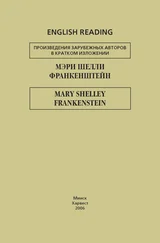Mary Shelley - The Fortunes of Perkin Warbeck
Здесь есть возможность читать онлайн «Mary Shelley - The Fortunes of Perkin Warbeck» — ознакомительный отрывок электронной книги совершенно бесплатно, а после прочтения отрывка купить полную версию. В некоторых случаях можно слушать аудио, скачать через торрент в формате fb2 и присутствует краткое содержание. Жанр: unrecognised, на английском языке. Описание произведения, (предисловие) а так же отзывы посетителей доступны на портале библиотеки ЛибКат.
- Название:The Fortunes of Perkin Warbeck
- Автор:
- Жанр:
- Год:неизвестен
- ISBN:нет данных
- Рейтинг книги:3 / 5. Голосов: 1
-
Избранное:Добавить в избранное
- Отзывы:
-
Ваша оценка:
- 60
- 1
- 2
- 3
- 4
- 5
The Fortunes of Perkin Warbeck: краткое содержание, описание и аннотация
Предлагаем к чтению аннотацию, описание, краткое содержание или предисловие (зависит от того, что написал сам автор книги «The Fortunes of Perkin Warbeck»). Если вы не нашли необходимую информацию о книге — напишите в комментариях, мы постараемся отыскать её.
The Fortunes of Perkin Warbeck — читать онлайн ознакомительный отрывок
Ниже представлен текст книги, разбитый по страницам. Система сохранения места последней прочитанной страницы, позволяет с удобством читать онлайн бесплатно книгу «The Fortunes of Perkin Warbeck», без необходимости каждый раз заново искать на чём Вы остановились. Поставьте закладку, и сможете в любой момент перейти на страницу, на которой закончили чтение.
Интервал:
Закладка:
There was a man, Richard Simon or Symond, who afterwards figured in the chronicles, that had long been secretly concerned in the course of events. He was the son of a tenant of Sir John Gray, and had been the playmate of the Lady Elizabeth Gray's elder children. His love of books, his sedentary habits, and quick wit on matters of learning, led those interested in his fate to consider him fitted for the church, and therefore he took priest's orders. But his mind, though not attuned to action in its noblest sense, was not one that could remain at rest. He loved power; he was sagacious, astute, and intriguing: when the Lady Gray became Queen, he being still too young for high promotion, preferred an unnoticed but influential situation near her person to more lucrative employ, which would remove him from the pleasures and dignity of the Court. When Edward died he devoted himself to the service of his royal patroness, and hardly escaped being imprisoned for life by Richard, when the latter was most exasperated against the Queen Dowager's relations. From that time Richard Simon found full occupation for his plotting head, in endeavouring to bring about the overthrow of the usurping Gloucester, and to raise the hopes of Henry the Seventh, who requited ill his active zeal: and now again he busied himself in exalting the Queen's party. He looked the man he was—a prier into secrets—one who conducted the drama of life by back-stairs and tell-tale valets: his small grey eyes were quick to discern the meaning of each smile or frown; his young brow was already wrinkled through care and thought; craft lurked in the corners of his lips; and his whispering voice betokened habitual caution. He continued to hover near the Queen; now dispatched to sound some Yorkist, now closeted to discuss some expression of the King's, in which to find a secret meaning. Repose was the thing he hated; and for ever with some plan on foot, some web to weave or unravel, he was seen with brows a little elevated by self-conceit, with a courtly bend of the body and insinuating address, now assuring a Lancastrian of the perfect satisfaction of the Queen, now whispering to a Yorkist a tale of slights and injuries practised by King Henry against his consort and her friends. All the communication that had taken place between Elizabeth Woodville and the Earl of Lincoln had been carried on through this man, though each knew not that he communicated to the other what either said. But Lincoln respected his undeviating fidelity towards his patroness, and valued his talents. It was to this man that Lady Brampton addressed herself on her arrival at Winchester, to procure for her a private audience with the Queen. Her dark hints respecting the insurrection of Lovel and the Staffords excited his curiosity, yet he experienced more difficulty than he expected in bringing the royal dowager to consent to receive her rival. When our days of prosperity are fled we cling fondly to all that reminds us of their brightness, and turn with augmented distaste from every thing that marred their splendour. Elizabeth loved to remember herself as the chosen bride of Edward, and any circumstance that spoke of his inconstancy, or detracted from the entireness of her influence over him, then inspired her with indignation, now with abhorrence. It required all Simon's dexterity to allay her anger, and excite her curiosity, sufficiently to induce her to admit her rival to her presence.
It was at the hour of vespers that the priest introduced Lady Brampton into the Queen's cabinet. Elizabeth was assured that she had secrets of importance to communicate, and she designed by affability to win her to a full disclosure of them. Yet her heart and manner grew cold as she entered the closet where the lady and her guide already were, and bending her head slightly, she said, "The Lady Brampton desired an audience with me—I grant it."
With all her vivacity and consciousness of the importance of her disclosures, the lady felt herself awed and chilled; and the memory of Edward came across her, who had before shielded her from such unkindness, and filled her eyes with tears. A long pause ensued; the Queen looked as in expectation, and Richard Simon, who had retired to an embrasure of a window, was about to come forward, when Lady Brampton, conquering her emotion, said, "Your Grace is the happy mother of the Queen of England, and the hope of an heir, which you now entertain, may make my intelligence distasteful."
"Say on," replied Elizabeth haughtily; "I listen to your words."
The lady felt much inclined not to say another word, but assuming almost equal coldness of manner, she continued, "Would your Grace prefer that your fair daughter should still bear the sceptre, or that Richard the Fourth should wrest it from the husband's grasp?"
Now indeed the Queen started, and cried impetuously, "I charge you, trifle with me no longer! Explain your words; who would supplant my child?"
"Her brother," Lady Brampton replied; and seeing the Queen lost in a mixture of amazement and terror, she added, "The Duke of York still lives: he is now, I trust, at the head of forces sufficient to enforce his rights. In a few days England will acknowledge him as sovereign."
In reply to these words, spoken with rapidity, as if they were pregnant with supreme delight to their auditress, the Queen with an angry look, said, "I shall league with no plotters to establish an impostor."
"Beware," said Lady Brampton indignantly; "let your Majesty bethink yourself, before you consign your son to misery and an early grave. Will his mother be his chief enemy?"
"Who vouches for him?"
"Himself! He is the very Edward who once was yours: his young features are but the miniature mirror of his royal father; his princely grace, his wit, his courage, are all derived from him."
"I must see the boy," said the Queen, "to end at once this silly masque. How do you pretend that he escaped from the Tower?"
The independence and sensibility of Lady Brampton's disposition would not permit her to answer a question asked thus ironically. Had she looked at the Queen, she might have seen, by her change of countenance, that it was nearly all put on by the jealous instinct that would not permit her to acknowledge herself under so great an obligation to her rival. Lady Brampton turned to Simon, saying, "I am ready to depart, Sir Priest; I see her Grace sorrows that the same cold bed does not entomb Richard of York and Edward the Fifth. Poor prince! My Lord of Lincoln counselled well, and I was to blame in not acting on his advice."
"Stay," cried Elizabeth, "speak again. Is the Earl of Lincoln a party to this tale?"
"Your Majesty insults me," said the lady; "I came here to please a mother's ear by assurances of her child's safety, and to conduct the tempest-tost fortunes of this ill-starred boy into the safe harbour of maternal love. I came with a full heart and an ardent desire to serve you; no other motive could have led me hither. You receive me with disdain; you dismiss me with contumely. I fear that so much you hate me, that, for my sake, your heart is steeled against your princely son. But as you already know so much as to make it necessary that you should know all, I will hasten to London, and intreat the noble de la Poole to communicate with you, and to avert a mother's enmity from her child. I take my leave."
She was about to depart; but Simon, who knew that a feud between the prince's partizans must ruin his cause, entreated her to remain; and then addressing the Queen, tried to sooth her, for she was pacing the rushes of her chamber in excessive agitation. "Peace, good friend," said she, "I will speak to Lincoln; I will ask him why I, who was deemed by his honoured uncle fit partaker of his councils, am kept by him in ignorance of the alleged existence of this poor boy? Even now he might be sitting on the throne, had I been consulted: instead of this, to what has this distrust brought him? He is a crownless king, a fugitive prince, branded as an impostor; a seal is put on his fate, which nothing probably will ever remove. I, even I, have called my son, if such he be, a counterfeit!"
Читать дальшеИнтервал:
Закладка:
Похожие книги на «The Fortunes of Perkin Warbeck»
Представляем Вашему вниманию похожие книги на «The Fortunes of Perkin Warbeck» списком для выбора. Мы отобрали схожую по названию и смыслу литературу в надежде предоставить читателям больше вариантов отыскать новые, интересные, ещё непрочитанные произведения.
Обсуждение, отзывы о книге «The Fortunes of Perkin Warbeck» и просто собственные мнения читателей. Оставьте ваши комментарии, напишите, что Вы думаете о произведении, его смысле или главных героях. Укажите что конкретно понравилось, а что нет, и почему Вы так считаете.












